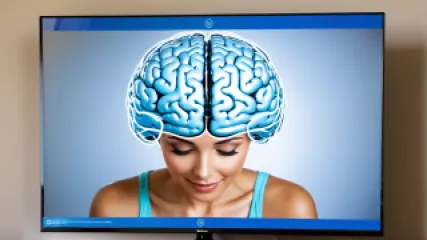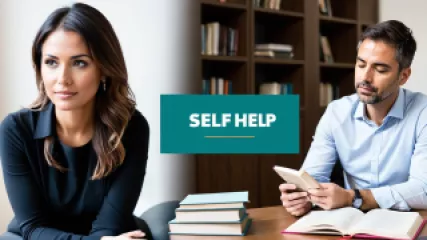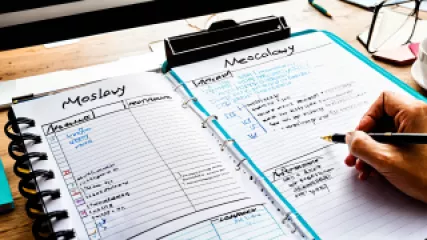Økoterapi
How to Practice Green Healing Therapy in Nature
Introduction
In our fast-paced and technology-driven world, it's becoming increasingly important to find ways to reconnect with nature and prioritize our mental and emotional well-being. One powerful way to achieve this is through eco-therapy, also known as green healing therapy or nature-based healing. This form of therapy integrates the healing power of nature into traditional counseling practices, offering a unique and rejuvenating approach to mental health. If you're interested in exploring eco-therapy and incorporating it into your life, this step-by-step guide will provide you with valuable insights and practical tips on how to practice green healing therapy in nature.
Step 1: Educate Yourself about Eco-Therapy
Before diving into the practice of eco-therapy, take some time to educate yourself about its principles and benefits. Familiarize yourself with the concept of nature-inspired therapy and understand how it can positively impact mental health. Read books, research articles, and online resources that delve into the subject. Some recommended reads include "Ecotherapy: Healing with Nature in Mind" by Linda Buzzell and Craig Chalquist, and "The Nature Fix: Why Nature Makes Us Happier, Healthier, and More Creative" by Florence Williams.
Step 2: Find an Eco-Friendly Mental Health Service or Therapist
To fully experience the benefits of green healing therapy, it's essential to work with professionals who specialize in eco-therapy or offer nature immersion counseling. Look for therapists, counselors, or mental health services that incorporate nature-based healing programs into their practice. These professionals will have the expertise to guide you through the therapeutic process while immersing you in the natural world. Seek recommendations from friends, family, or your primary care physician, and conduct thorough research to find the right fit for your needs.
Step 3: Explore Nature Immersion Retreats
Nature immersion retreats provide an opportunity to disconnect from the stresses of everyday life and immerse yourself in the healing power of nature. These retreats are designed to offer a holistic experience, combining eco-therapy practices with outdoor activities, mindfulness exercises, and group therapy sessions. Research eco-therapy retreats in your area or consider traveling to destinations known for their natural beauty. Retreats such as Yosemite Ecotherapy Retreat in California or The Haven Retreat in British Columbia offer a range of nature-based healing programs.
Step 4: Incorporate Nature into Your Daily Routine
While attending retreats or working with a therapist are valuable experiences, it's equally important to incorporate nature into your daily routine. Make a conscious effort to spend time outdoors, whether it's a walk in the park, gardening, or simply sitting under a tree. Create a green space in your home by incorporating plants and natural elements. Consider building a small garden or balcony oasis where you can engage in eco-therapy activities such as meditation, journaling, or practicing mindfulness.
Step 5: Engage in Nature-Inspired Activities
Nature-inspired activities can enhance your experience of green healing therapy. Engage in activities that bring you closer to nature and allow you to connect with its healing energy. Here are some suggestions:
1. Forest Bathing: Take leisurely walks in the forest, focusing on all your senses and embracing the therapeutic benefits of being surrounded by trees and natural sounds.
2. Nature Art Therapy: Create art using natural materials, such as leaves, flowers, or rocks. Allow your creativity to flow and express your emotions through this process.
3. Mindfulness Meditation: Find a quiet outdoor spot, close your eyes, and focus on your breath while being fully present in nature. Let go of worries and distractions, and allow the serenity of the environment to calm your mind.
4. Outdoor Yoga or Tai Chi: Practice yoga or tai chi in a natural setting. The combination of movement, breath, and nature creates a harmonious experience that promotes inner peace and physical well-being.
Step 6: Practice Eco-Consciousness
In addition to engaging in eco-therapy activities, practicing eco-consciousness in your daily life is an integral part of green healing therapy. Adopt sustainable habits such as recycling, reducing waste, conserving water and energy, and supporting local produce. Volunteer for environmental organizations or participate in community clean-up initiatives. By nurturing the environment, you foster a deeper connection with nature and contribute to your own well-being as well as the health of the planet.
Conclusion
Green healing therapy, or eco-therapy, offers a holistic approach to mental health by integrating the healing power of nature into traditional counseling practices. By following this step-by-step guide, you can begin to practice eco-therapy in your own life and experience the transformative effects of nature immersion. Whether through retreats, therapy sessions, or daily nature-inspired activities, embracing green healing therapy can lead to improved well-being, enhanced self-awareness, and a deeper connection with the natural world. So go ahead, step outside, and let nature be your guide on the path to healing and self-discovery.















